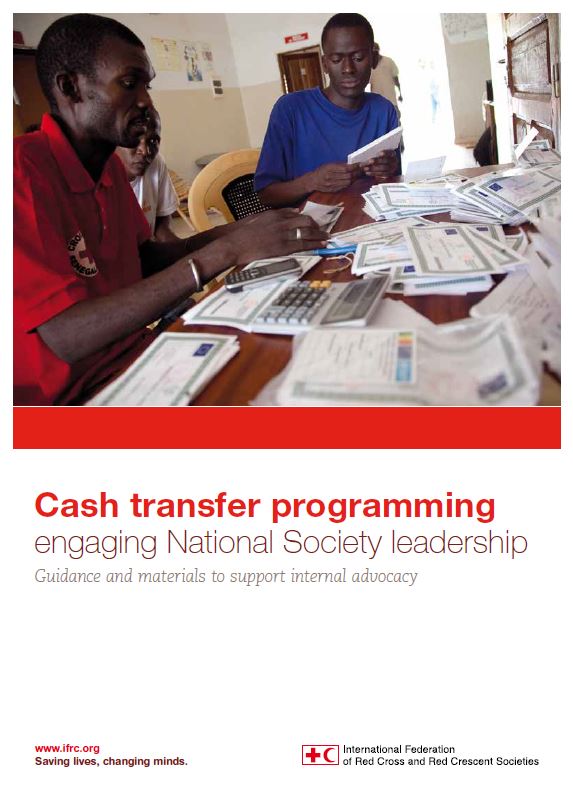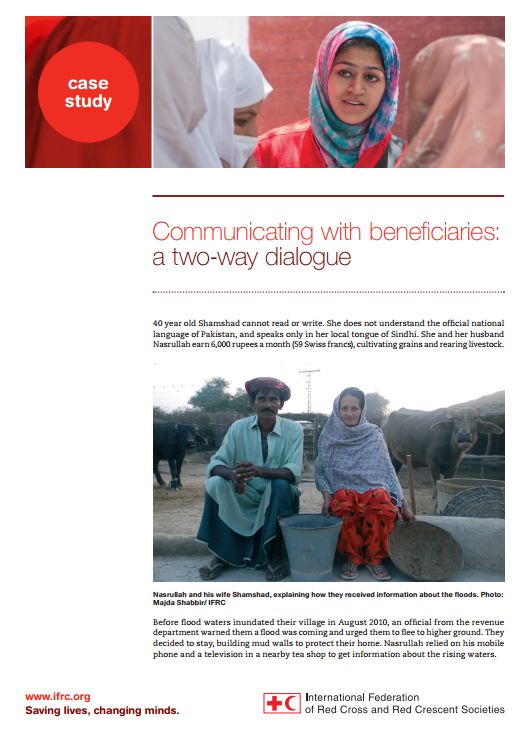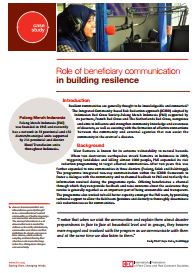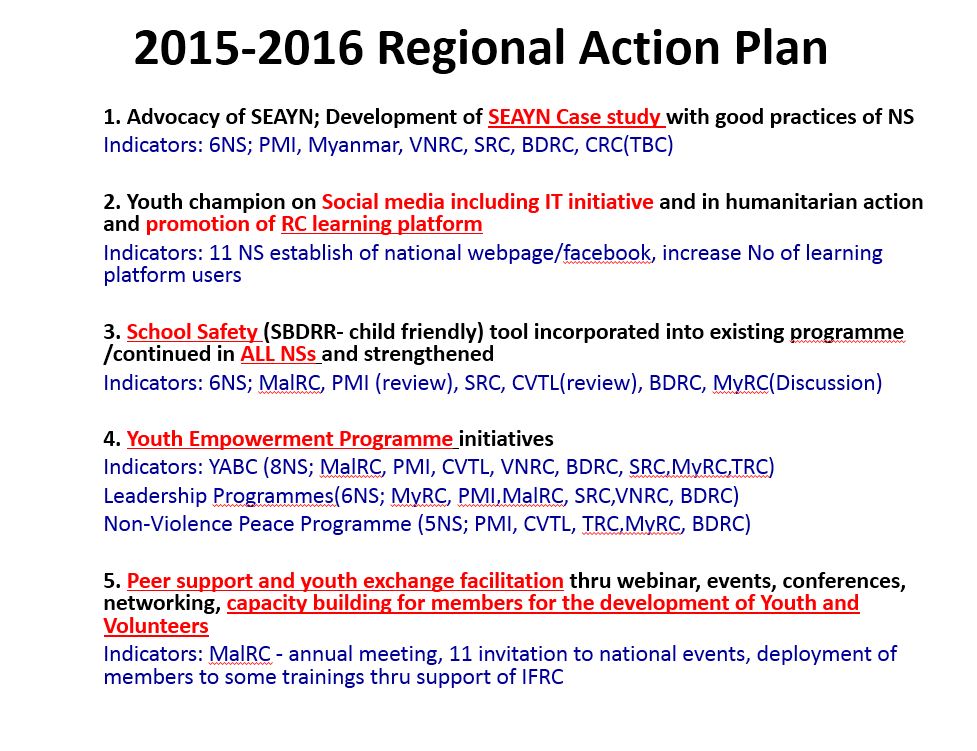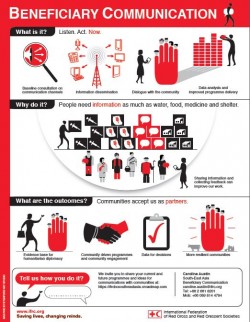Purpose:
This guidance provides the materials required to run an awareness session (internal advocacy) for senior representatives of a National Society on the nature of cash transfer programming, its challenges and benefits. National Societies work in different contexts and as such the materials will need to be adapted to suit the specific purpose.
With the aim to provide the resources needed to analyse the barriers to the use of cash transfers within the National Society, and to use these to plan and facilitate a meeting or workshop with its leadership to explore opportunities and constraints associated with cash transfer programming, and thus promote the consideration of cash transfers as part of a response option analysis process.
This guide is also equipped with a powerpoint presentation (in the same link below as the guidelines), discussing about:
- What is CTP?
- Why some National Societies choose CTP
- Approaches to CTP
- Transfer modalities
- Mapping RC/RC CTP
- Trends in CTP
- Response option analysis (how to determine what programmatic approach is the most appropriate)
Overview:
The process could be summarized below:
- Step 1: Situation analysis
- Step 2: Defining the purpose of our intervention
- Step 3: Identifying the target audience
- Step 4: Selecting the advocates
- Step 5: Developing the approach
- Step 6: Finding and selecting appropriate evidence
- Step 7: Planning the meeting
- Step 8: Holding the meeting
- Step 9: Follow-up
Usage: Guidance for internal advocacy implementation
Audience: National Society leaders and staff
![]()


